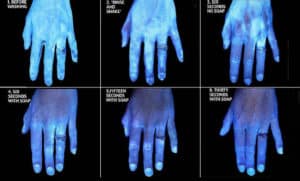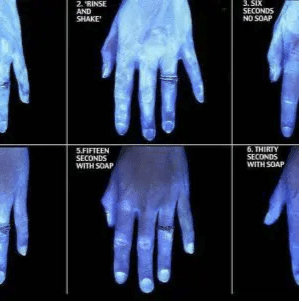Here we present our HPV DNA Testing UK product solution for the consumer. And our Fit to fly DNA Test kits. These are the tools used to prevent viruses from spreading and seriously impacting life in the UK.
How to prevent the spread
A new virus known as severe acute respiratory syndrome was recognised as the reason for the disease outbreak, which started in Wuhan in 2019. The virus detected using an Antigen Test, known as Covid-19, is transmitted through the air, unlike other viruses that cause serious issues, like HPV. Covid became a pandemic by the World Health Organization in March 2020, and governments, in conjunction with their health officials, have been working round the clock to find a vaccine and research a cure for the disease. Since there isn’t a cure or vaccine for this deadly disease, health bodies have pointed out how individuals can prevent contracting and spreading the disease. A Fit to Fly DNA Test near me is also one way to know whether you are at risk of this disease.
Wash your hands thoroughly and regularly. Use soap and warm water to wash your hands for at least 20 seconds. Scrub areas between your fingers, beneath your fingernails, and work it up to your wrists. We recommend using antiviral or antibacterial soaps for handwashing to avoid covid. Alternatively, using hand sanitiser when washing your hands is impossible. Try to practice handwashing numerous times daily, especially when touching surfaces. This is a good practice to follow, especially before a fit to fly Antigen Test.

Wash Your Hands Before taking a nasal or oral swab for Fit to Fly Test Kits, a genital swab or an HPV DNA Testing UK…
Touching your face may need an HPV DNA Testing UK.
Fit to Fly DNA test kits can be obtained online or at a nearby clinic. And is used to identify the antibodies of the virus and can also be obtained online and at a centre near you. Studies have shown that the infection can live on surfaces for up to 3 days for COVID and up to several years. Therefore, you can contact COVID by touching your cell phone, railings, gas pump handles, and doorknobs. Chlamydia tests mostly spread through the exchange of bodily fluids.
Do not touch your face because the contamination is transmitted into your body through the eyes, nose, and mouth. Avoid biting your fingernails. Do not shake hands and hug people. It would help if you avoided physical contact with other people. The disease spreads easily. Avoid sharing personal items. Do not share personal items like phones, towels, combs, or makeup.
In the case of COVID, do not share items like straws or eating utensils. Cover your nose and mouth while sneezing and coughing. The bacteria are located in the nose and mouth. This is why we do the tests using nasal and oral swabs. We know that other people are infected by air droplets transmitted when coughing. It can also contaminate surfaces and remain there for up to 72 hours. Always use a disposable tissue or sneeze into your elbow. This helps to keep your hands clean. Ensure you wash your hands or sanitise them after coughing or sneezing. Make sure to wash your hands thoroughly for more than 30 seconds. Rub every nook and corner of your palm and fingers.
Cleaning and disinfecting surfaces will help with HPV spread too.
Alcohol-based disinfectants have proven to be effective in removing the covid from the surfaces of objects. Use them while cleaning hard surfaces like door handles, countertops, toys, and furniture. Do not neglect cleaning your phone, laptops, or surfaces you contact regularly. Make sure to disinfect the packages you bring into your home. Hydrogen peroxide solutions or white vinegar are useful for the general disinfection of surfaces.
Conclusion HPV DNA
Prevention is better than cure. Ensure to visit a doctor or any Fit to Fly kits if you notice any symptoms of COVID. Or if you have concerns about HPV, then we suggest booking for HPV DNA testing. Please make sure you call beforehand so the health workers can take the necessary steps to prevent themselves from contracting the disease.










